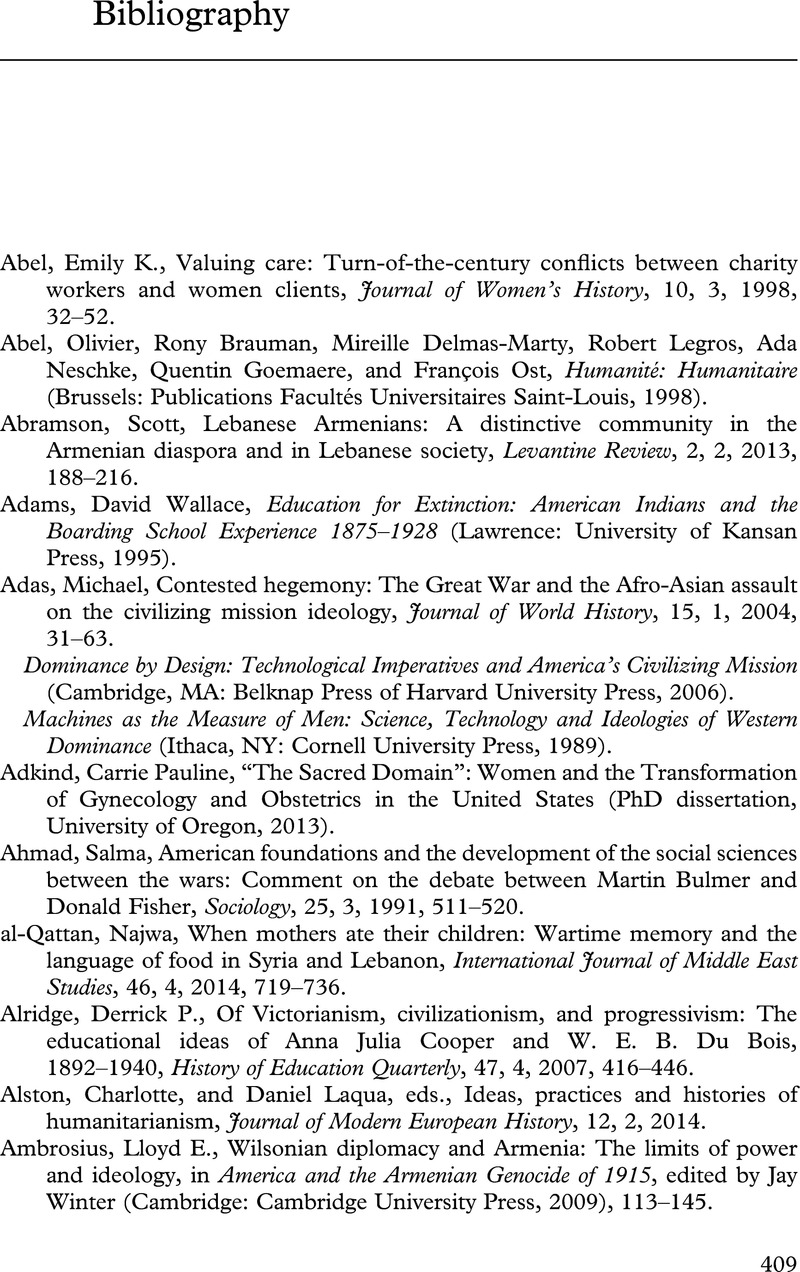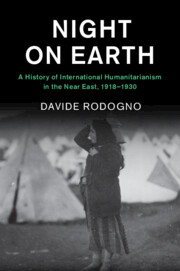Book contents
- Night on Earth
- Human Rights in History
- Night on Earth
- Copyright page
- Dedication
- Epigraph
- Contents
- Figures
- Tables
- Acknowledgments
- Note on the Text
- Abbreviations
- Introduction
- 1 A Loose Configuration of Humanitarian Actors
- 2 From Repatriation to Resettlement of Ottoman Armenians
- 3 The Near East Relief
- 4 The American Board of Commissioners for Foreign Missions
- 5 Relief and Rehabilitation in Transcaucasia, 1919–1929
- 6 The American Red Cross in Jerusalem and Palestine, 1918–1921
- 7 International Humanitarian Actors in Beirut, Aleppo, and Cilicia
- 8 The Revealing History of an Allied Fact-Finding Mission in the Sea of Marmara and a Lone Delegate of the International Committee of the Red Cross
- 9 International Humanitarian Operations in Greece before and after the Summer of 1922
- 10 Rehabilitation without Relief
- 11 The American Women’s Hospitals from Macronissi Quarantine Island to Public Health Work
- 12 Modernization, Technical Assistance and Development avant la lettre
- Epilogue
- Notes
- Bibliography
- Index
- References
Bibliography
Published online by Cambridge University Press: 10 December 2021
- Night on Earth
- Human Rights in History
- Night on Earth
- Copyright page
- Dedication
- Epigraph
- Contents
- Figures
- Tables
- Acknowledgments
- Note on the Text
- Abbreviations
- Introduction
- 1 A Loose Configuration of Humanitarian Actors
- 2 From Repatriation to Resettlement of Ottoman Armenians
- 3 The Near East Relief
- 4 The American Board of Commissioners for Foreign Missions
- 5 Relief and Rehabilitation in Transcaucasia, 1919–1929
- 6 The American Red Cross in Jerusalem and Palestine, 1918–1921
- 7 International Humanitarian Actors in Beirut, Aleppo, and Cilicia
- 8 The Revealing History of an Allied Fact-Finding Mission in the Sea of Marmara and a Lone Delegate of the International Committee of the Red Cross
- 9 International Humanitarian Operations in Greece before and after the Summer of 1922
- 10 Rehabilitation without Relief
- 11 The American Women’s Hospitals from Macronissi Quarantine Island to Public Health Work
- 12 Modernization, Technical Assistance and Development avant la lettre
- Epilogue
- Notes
- Bibliography
- Index
- References
Summary

- Type
- Chapter
- Information
- Night on EarthA History of International Humanitarianism in the Near East, 1918–1930, pp. 409 - 448Publisher: Cambridge University PressPrint publication year: 2021



